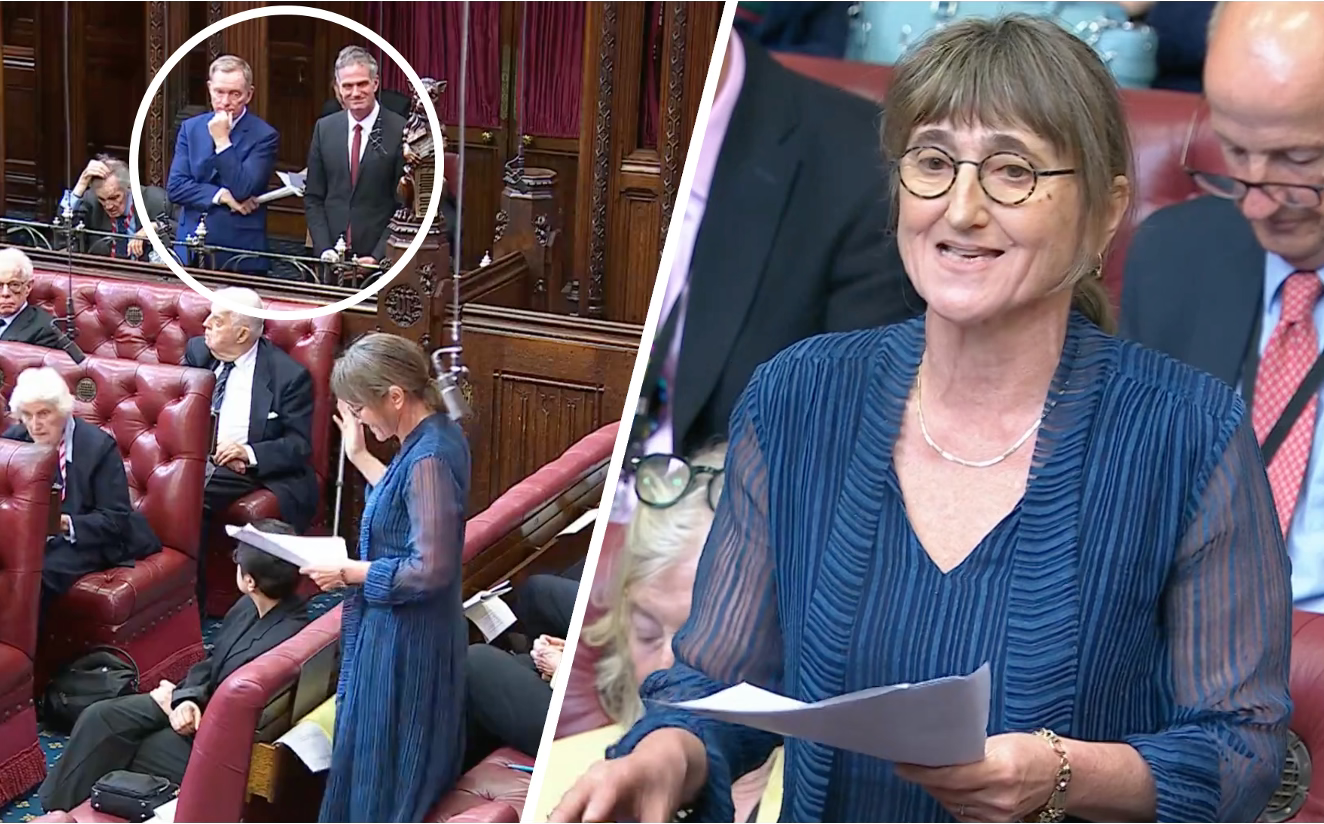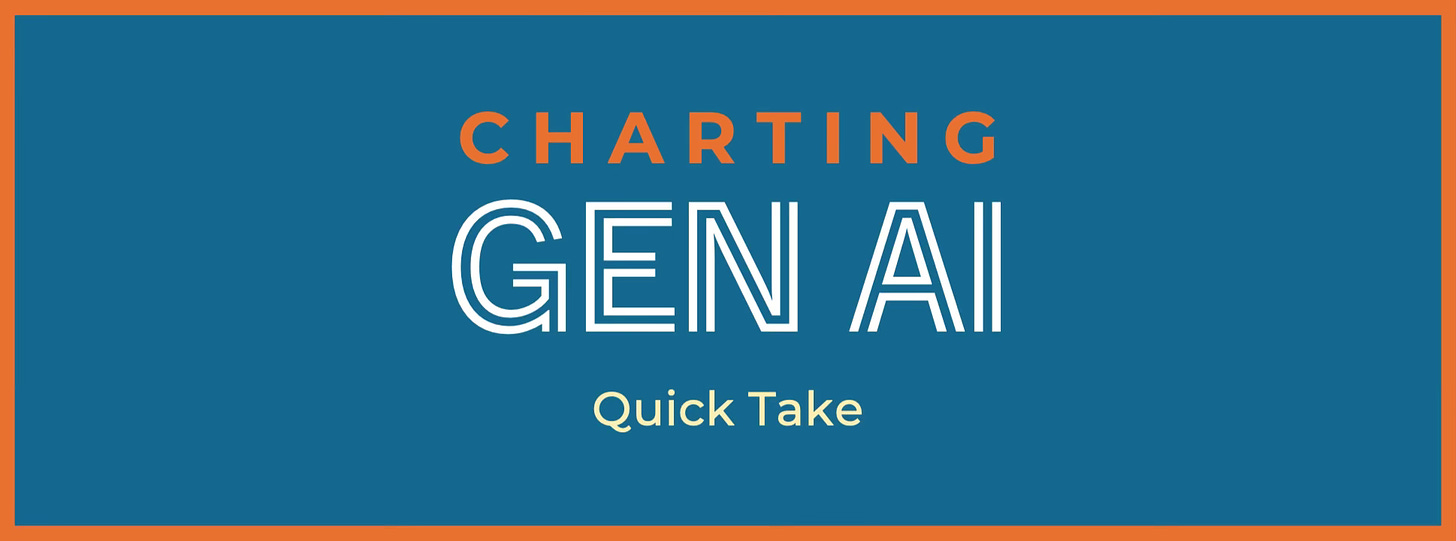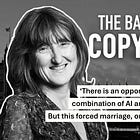Creators' hero defeats UK government on AI transparency. What happens next?
Baroness Kidron says creative industries' IP 'is not ours to give away to AI developers'

WHAT’S HAPPENED?
CREATORS’ CHAMPION Baroness Kidron last night scored an emphatic victory in the latest parliamentary tussle over the government’s stance on AI and copyright. The UK’s upper house backed Baroness Kidron’s transparency amendment to a data bill that will force AI developers to reveal sources of their model training data by 272 votes to 125.
The drama over the bill is far from over. We’ll shortly explain what happens next, plus reveal why the government’s plans on AI might be heading back to square one. But first … Baroness Kidron’s passionate speech, which followed the letter she organised on Saturday to prime minister Keir Starmer calling on the government to change its course on AI, signed by over 400 creative industry luminaries including Sir Elton John and Sir Paul McCartney.
With beleaguered technology secretary Peter Kyle and a pensive-looking creative industries minister Chris Bryant watching on, Baroness Kidron began by rebutting the assertion that campaigners were “against technology”. Directly addressing Kyle and Bryant, who silently stood in an area reserved for MPs, she insisted creative people were “early adopters of technology”. “Their minds are curious and their practices innovative. In my former career as a film director, I watched the UK film industry transform from working on celluloid to being a world-leading centre of digital production. For the past five years at Oxford’s Institute for Ethics in AI, where I am an advisor, I have been delighted to watch the leaps and bounds of AI development. Those at the frontier of AI development are creative thinkers, and creative people are natural innovators,” said Baroness Kidron before calmly and defiantly stressing: “The government’s attempt to divide us is wrong.”
Creators did not “deny the creative and economic value of AI” but they did “deny the assertion that we should have to build AI for free with our work and then rent it back from those who stole it”. “Ours is not an argument about progress but about value. The AI companies fiercely defend their own IP but deny the value of our work. Not everything new is progress, not everything that already exists is without value, but we, the creative industries, embody both change and tradition, and we reject the assertion that we are standing in the way of change. We are merely asserting our right to continue to exist and play our part in the UK’s future growth.”
Baroness Kidron then demolished the government line that there was confusion over copyright and AI. Referring to the government’s consultation on plans to water down copyright in favour of AI developers Baroness Kidron said the 11,500 responses proved the “widespread outrage of the creative industries” over the government’s attempt to “redefine theft rather than uphold their property rights”.
“Let me be clear,” she declared. “We do not need to change copyright law. We need transparency so that we can enforce copyright law, because what you cannot see you cannot enforce.” Baroness Kidron said her amendment to the Data (Use and Access) Bill was needed now, otherwise “by the time the government works out its policy, there will be little to save”.
Two “terrible tragedies” were unfolding, Baroness Kidron explained.
“First, the government is undermining one of our greatest industrial sectors; secondly, it may be on a path to squandering for all time the UK’s opportunity to take its rightful place in the new world of AI as a global leader in the AI supply chain. Generative AI depends on three things: skill, energy for compute and high-quality data. We punch above our weight on skills, but are no match for the US and China. Without lowering our energy costs five-fold, the natural choice will be for AI firms to train elsewhere. However, the UK has a disproportionate amount of quality data, a huge proportion of which is the intellectual property owned by our powerhouse creative industries.
“We should be creating market conditions that ensure our creators can continue to contribute to the culture, soft power and long-term sustainable growth of our four nations. The economic argument is overwhelming: it is a crucial part of our nation’s assets and the foundation of its future in the AI economy, which cannot be replaced by a handful of data centres. The moral argument is also unassailable: creators’ work is the result of their labour; it is their property, and it is for them to determine what they do with it.”
Baroness Kidron concluded by thanking “the hundreds of creators who have emailed, written, spoken and campaigned in support of this amendment … from the biggest record label to the freelance photographer just starting out” as well as trade groups and organisations that had swung behind the Make It Fair campaign and Creative Rights in AI Coalition. “And, finally, to the young people who have contacted me, furious that government ministers who so recently were given the privilege of fulfilling their own ambitions are carelessly throwing away the possibility that the next generation of creators fulfil theirs.”
Looking around the chamber she urged peers to “make clear to the 2.4 million people who make up the creative industries and their dependants, to the would-be creators of the future, and to the citizens of the UK who enjoy and benefit from their creativity, that their property, their labour, is worthy of our protection — apart from anything else, it is not ours to give away”.
Forcing a vote on her amendment after a brief debate, Baroness Kidron said the evidence that “wholesale stealing of UK copyright has gone on, is going on and will go on until we take action” was in front of the government’s eyes and required action now. And she called on peers of all political persuasions “to show the creative industries that this house has their back”.
Speaking to Charting Gen AI minutes after her victory a jubilant Baroness Kidron said: “I am delighted by the vote and the support across the house and the creative industries. It is now up to the government to do the right thing and leave my amendment in the bill.”
Commenting on the decisive win, Sophie Jones, strategy chief at the BPI, the voice of the UK’s recorded music industry, said the upper house had “taken the right decision by voting to establish vital transparency obligations for AI companies”. “Transparency is crucial in ensuring that the creative industries can retain control over how their works are used, enabling both the licensing and enforcement of rights. If the government chooses to remove this clause in the Commons it would be preventing progress on a fundamental cornerstone which can help build trust and greater collaboration between the creative and tech sectors, and it would be at odds with its own ambition to build a licensing market in the UK.”
WHAT HAPPENS NOW?
✨The bill — which isn’t a copyright bill at all, but an opportunity to attach AI protections to current legislation — is stuck in what is known as ‘parliamentary ping pong’. The bill began in the Lords with Baroness Kidron’s earlier amendments which bolstered current copyright laws. They were removed in the Commons where a later attempt to reinstate them failed. The bill now ping-pongs back to the Commons where the government’s majority will ensure the transparency amendment is removed before the bill returns to the Lords. Simply put, the back and forth can continue until one side backs down, but if stalemate ensues then the entire bill could be lost — prompting a major headache for the government. Amid that uncertainty and government spokespeople briefing the line that ministers no longer back the opt-out option they said they preferred in their consultation, questions are being asked over the future of technology secretary Peter Kyle. Speaking on condition of anonymity a source told Charting that Kyle had been “trounced on an issue that everyone could see had been waiting to explode for months”. The source cited rumours he could be moved to the education department. “That would be ironic because he clearly hasn’t learnt a thing since the consultation began. Luckily for him, he still has the opportunity to copy Baroness Kidron’s homework,” added the source. A new minister would give the government an opportunity to look afresh at AI and copyright, and unambiguously answer what Baroness Kidron said in her letter to Starmer were “two of the most important questions of our time”, namely, “how AI is developed, and who it benefits”.
RELATED:
◾️Further reaction to this and the key developments that threaten to reshape the global AI regulatory landscape will be in this Friday’s Weekly Newsletter.











Government is yet to publish the consultations, and therefore the argument that model training companies make in favour of free and unlimited use, or in favour of more permissive licensing. That will be very very interesting to see!
Great read - It will be interesting to see how the amendments develop and what the Lords can get into the Bill - perhaps another form of report after 12 months is the best they can hope for, but hopefully the Government will include some provisions to protect the creative industries.